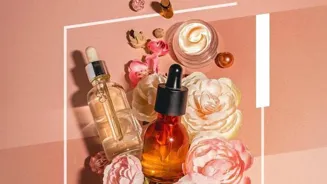Unveil the Mysteries of Perfume History! 10 Intriguing Facts Await - Dive in for a Fragrant Adventure!
Fragrances, or perfumes as we commonly call them, have been a part of human civilization for millennia.
From ancient rituals to modern-day expressions of personality, perfume's journey through history is a fascinating one.
We dollop it on ourselves before heading out for weddings, poojas, or even just a trip to the local market. But how many of us truly know the origins of this fragrant companion? Prepare to be surprised by these ten fun facts that reveal the surprising and rich history of perfume!
Perfumes: from ancient rituals to modern indulgence in fragrance
Long before hitting the shelves of your favourite malls, perfumes served a higher purpose. In ancient civilizations like Mesopotamia and Egypt, perfumes were primarily used in religious ceremonies.
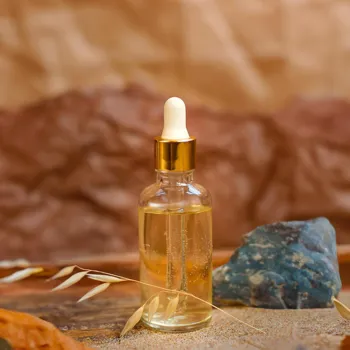
They were burnt as offerings to the gods, to create a sacred atmosphere, and even to help guide souls to the afterlife. The Egyptians, in particular, were avid users. They believed that fragrance had divine properties.
They even mummified their dead with perfumed oils to ensure a pleasant journey to the other world. Fancy, eh? So, next time you’re spraying on that ittar, remember you're participating in a very old tradition!
Perfume's origin: Latin "per fumum" means "through smoke," linking to ancient scent-burning rituals
The word "perfume" finds its roots in the Latin phrase "per fumum," which translates literally to "through smoke." This is a direct reference to the earliest forms of perfume, which involved burning fragrant substances like resins and woods.
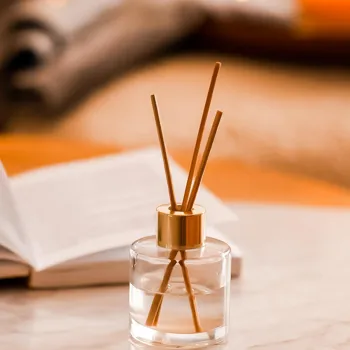
Think about the incense sticks you light during Diwali or the hawan ceremonies. These are direct descendants of that very early practice. Imagine, every time you spritz on your favourite scent, you're using a concoction named after something that goes up in smoke!
It’s quite a quirky fact, wouldn't you agree?
Women pioneers in perfumery dated back to 1200 BC
We often associate perfume with feminine elegance, but history tells a different story. The world’s first recorded chemist was a woman named Tapputi, a perfume maker from Mesopotamia, around 1200 BC. She used flowers, oil, and calamus, and filtered them to create her blends!
This discovery proves that women were the initial leaders in the perfumery arts. She wasn't just mixing things; she was recording her methods, making her a true pioneer. Now that's some serious girl power! Amazing, right?
Fact 4
Perfume Bottles Were Once More Valuable Than the Perfume Inside!
Ancient perfume bottles held as much value as the scents
In ancient times, the containers used to hold perfumes were often as valuable, if not more, than the fragrant liquids themselves. These bottles were crafted from precious materials like alabaster, gold, and semi-precious stones. They were often intricately decorated and considered works of art.
Owning such a bottle was a symbol of status and wealth. Think of it as the ancient equivalent of owning a limited-edition designer handbag. The perfume was important, naturally, but the bottle? That was real bragging rights! It shows the importance they placed on the art of perfumery.
Arabs revolutionized perfumery with refined distillation techniques
While many civilizations enjoyed perfume, the Arabs revolutionized the art of perfumery. They refined the distillation process, allowing for the extraction of purer and more concentrated scents from flowers and other natural materials.
Think about ingredients like rose and jasmine; you can thank Arabian perfumers for honing the techniques that brought us these beautiful extractions! Their innovations laid the foundation for the modern perfume industry.
So, give a nod to the Arab world next time you're enjoying a beautifully crafted fragrance.
Medieval hygiene: Fragrance for survival, not luxury
In medieval Europe, personal hygiene was, shall we say, not a top priority. Bathing was infrequent, and disease was rampant. People thought diseases were spread by bad air or "miasma". So, folks carried pomanders (small balls containing fragrant substances) and doused themselves in perfume.
Not just for smelling nice, it was a life-or-death matter. Imagine: your favourite fragrance could have been considered a matter of life or death!
Queen Catherine de Medici's secret perfume lab with poisons
The glamorous and influential Catherine de Medici, Queen of France in the 16th century, was a HUGE perfume enthusiast. Knowing that perfume could be a weapon, she created her own secret laboratory in her castle, connected with a secret passage to her apartments.
She appointed her perfumer, Rene le Florentin, who was rumoured not only to create her perfumes, but also to conjure up poisons! Now that is what you call devotion! That is just one level of commitment. Imagine, a secret perfume lab!
Eau de Cologne: historical blend with health benefits
Eau de Cologne, that light and refreshing fragrance so many of us enjoy today, was first created in Cologne, Germany, in the early 18th century. The original formula was a secret blend of citrus oils, herbs, and alcohol. It was considered a miracle water that could cure all sorts of ailments!
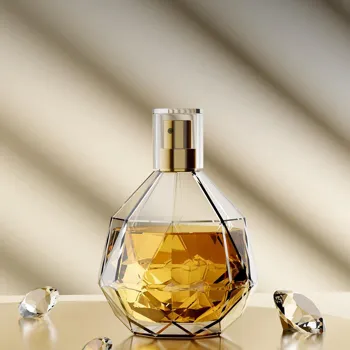
It was more than just a "nice smell"; it was marketed as a health tonic for internal and external use. Who knew that your favourite splash of cologne had such a history?
19th-century shift to synthetic scents democratized perfumery
The late 19th century witnessed a major turning point in perfumery: the development of synthetic aroma compounds. Before this, perfumes relied solely on natural ingredients, which were expensive and limited in availability.
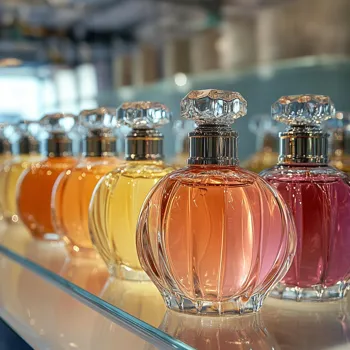
Synthetic ingredients allowed perfumers to create entirely new scents and replicate existing ones at a lower cost. This opened up the world of perfume to a much wider audience. This is where perfume because more accesable to the masses.
Fragrance can impact mood and emotions profoundly
Perfume's influence is not just skin deep. Studies have shown that certain scents can have a profound impact on our mood and emotions. Lavender, for example, is known for its calming properties, while citrus scents can be invigorating and uplifting.
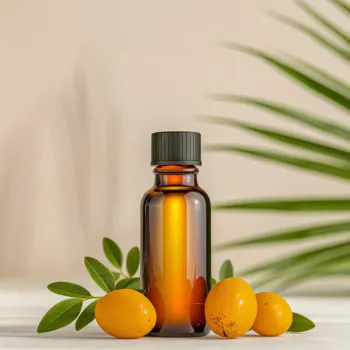
Next time you feel down, try adding a dash of perfume. It could be just the thing you need to fight the blues. So, your choice of fragrance can be a powerful tool! And that makes perfume an art.
